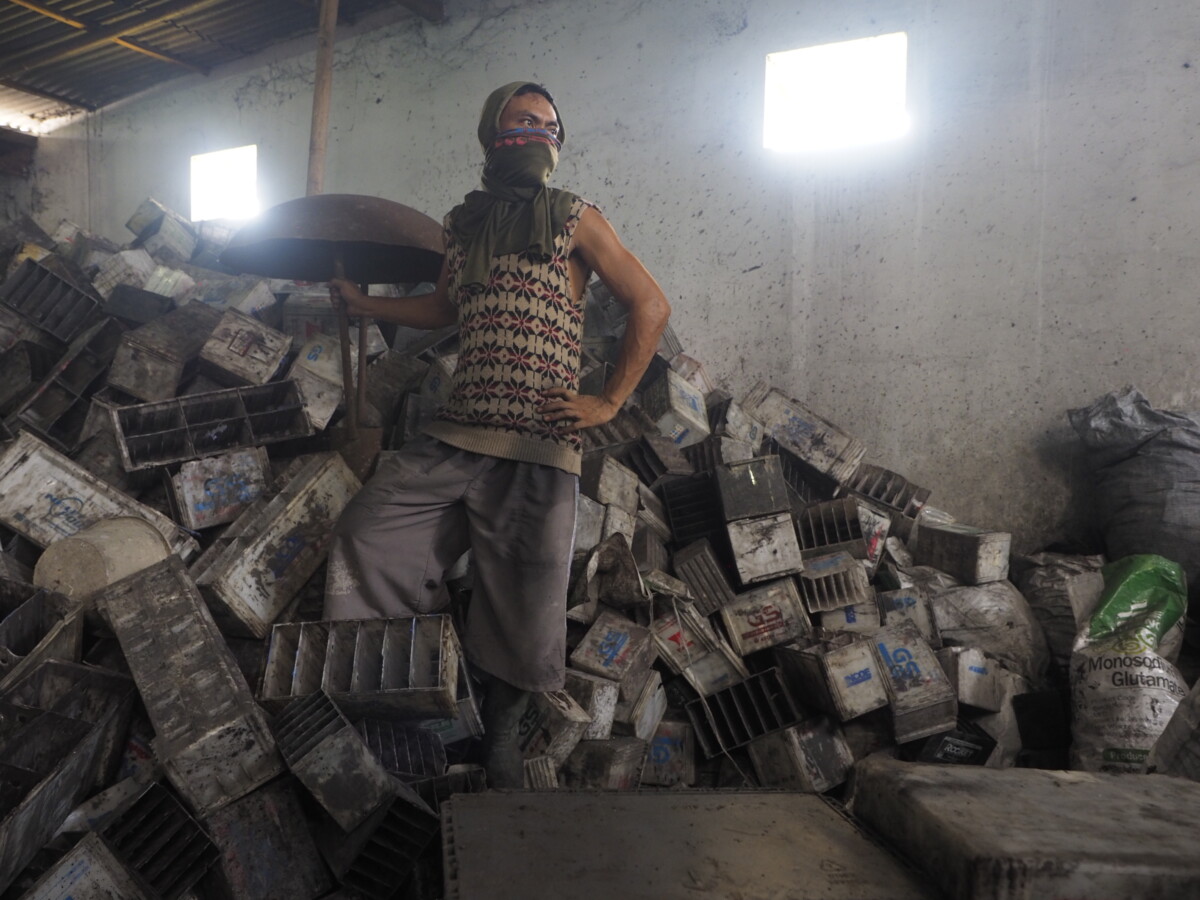Mitigating Lead Exposure in Indonesia: Improving Used Lead-Acid Battery Recycling Practices

The Mitigating Lead Exposure in Low- and Middle-Income Countries (LMICs) project seeks to reduce lead exposure in Asia, Africa, and Latin America from exposure sources such as metal and ceramic cookware, adulterated spices, environmentally unsound used lead-acid battery (ULAB) recycling, and cosmetics. The overarching objective is to assist governments and stakeholders in strengthening institutional capacities, programs, and policies to effectively assess, prioritize, and mitigate lead exposure. Project countries include Colombia, Egypt, Ghana, India, Indonesia, Peru, and the Philippines.
In Indonesia, the project is focused on supporting authorities in managing used lead-acid battery (ULAB) recycling practices. ULAB recycling operations potentially release lead into the environment, endangering workers and surrounding communities.
Pure Earth began working in Indonesia in 2009, identifying more than 170 toxic sites, with lead being the most prevalent pollutant followed by mercury. According to the Institute For Health Metrics and Evaluation (2021), 7,890,945 Indonesian children (7.1%) have blood lead levels (BLLs) above 5 µg/dL.
While most low- and middle-income countries have some form of regulation that dictates acceptable practices in such operations, these laws and policies are often insufficient and loosely enforced. However, best practices for national ULAB management systems do exist. Pure Earth has authored or contributed to many manuals and guidance documents, including UNEP’s A Guidance Manual for Policymakers and Regulators for the Environmentally Sound Management of Waste or Used Lead Acid Batteries in Africa, the World Economic Forum white paper Consequences of a Mobile Future: Creating an Environmentally Conscious Life Cycle for Lead-Acid Batteries, the soon-to-be-released updated version of the Basel Convention Technical Guidelines on the Environmentally-Sound Recycling of Waste Lead Acid batteries.
Project Objectives:
- Estimate and research the number of used lead-acid batteries (ULABs) that are recycled in environmentally unsound facilities
- Work with national and sub-national government agencies and battery producers/recyclers to develop and implement regulatory guidance
Project Activities:
- Conduct ULAB ecosystem stakeholders mapping and supply chain analysis
- Review hazardous waste management regulations and requirements for the ULAB sector
- Produce recommendations and policy briefs for key stakeholders to strengthen the enforcement of regulations
- Implement pilot activities for environmentally sound management of ULAB as hazardous waste and specific waste
- Raise awareness in affected communities
- Support adoption of new Basel Convention Technical Guidelines
